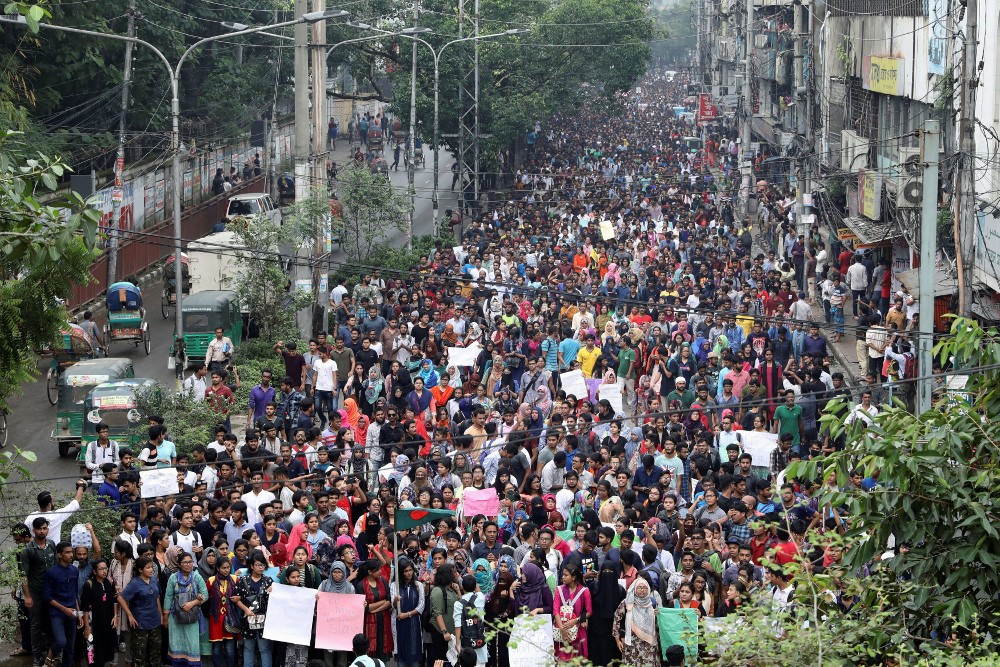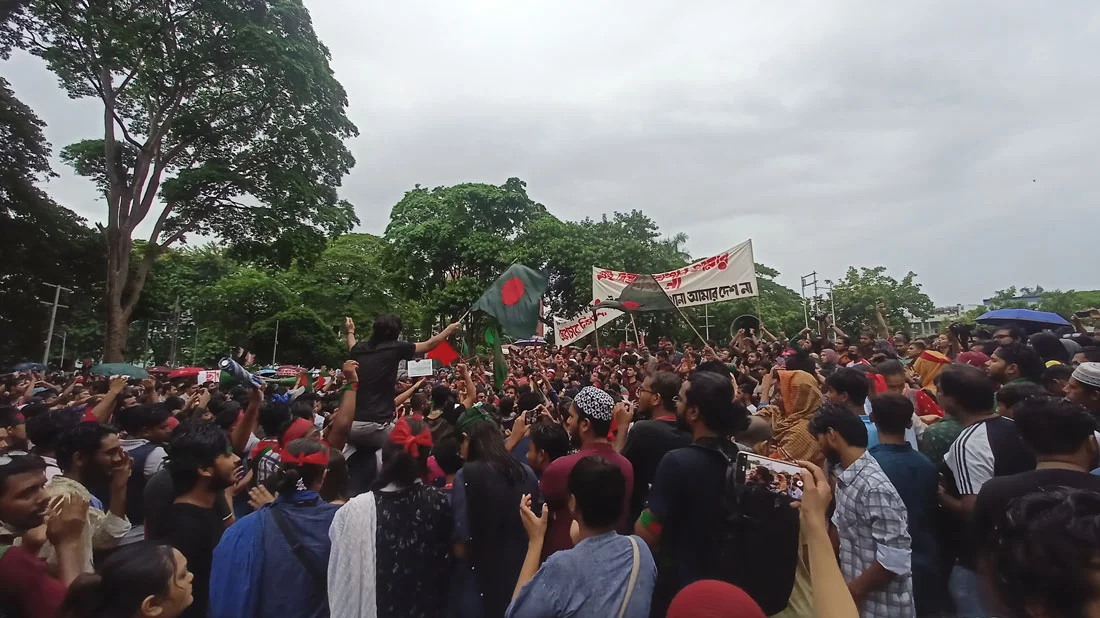The student-led revolution in Bangladesh in July 2024 has created a significant political vacuum in the country. After years of authoritarian rule, corruption, and a growing disconnect from the general public — especially the younger generation — the Awami League (AL) government was overthrown. As a result, AL is no longer in a position to exert meaningful influence over Bangladesh’s political landscape. Other political parties lack the organizational strength, network of supporters, and influence needed to fill the gap. In this context, despite its obviously troubled history, the Bangladesh Nationalist Party (BNP) currently stands out as the most viable political force, owing to its well-established organizational structure and grassroots support.
However, while the BNP may appear to have the upper hand in this period of political turmoil, the party cannot assume that regaining power will be easy. The past 15 years have been challenging, marked by a decline in their leadership and internal conflict. Many of the BNP’s seasoned leaders were jailed, some passed away, and others fled the country, causing a significant vacuum in leadership. Despite this, the party remains ostensibly strong, with an extensive network of workers.
However, with new student-led political parties gaining momentum, it is clear that BNP cannot simply assume power. They must evolve and prove themselves worthy of the trust of the Bangladeshi people.
One of the crucial elements of BNP’s potential return to power lies in their ability to adapt to changing times. The party’s acting chairperson, Tarique Zia, has already acknowledged that tough times are ahead, signaling that the leadership is aware of the many challenges they must face. This acknowledgment is an important first step.
Needless to say, BNP must now focus on reforming their party structure, eliminating corruption at all levels, and ensuring that they maintain public support through ethical governance. Tarique Zia’s recent statements highlight a shift in his approach. He seems to have learned valuable lessons from past mistakes, and this could be a turning point for the party.
BNP’s journey in the last decade has been one of reflection and realization. Despite holding power four times in the past, the party’s leadership has learned the harsh reality that power is not permanent. They have come to understand that without the support of the general public, their hold on power becomes fragile. Furthermore, corruption and abuse of power can never guarantee long-term popularity. It is a harsh truth that the party must now confront, but one that provides them with the opportunity to reinvent themselves.
Tarique Zia, a controversial figure to be sure, seems to have matured considerably over the years. His recent statements reveal a deep understanding of the changing political landscape, particularly when it comes to engaging with the younger generation. Gen Z, with their focus on transparency, ethics, and innovation, presents a new challenge but also a new opportunity for the beleaguered BNP. An ability to resonate with their values will be crucial for the party leadership’s success.
For BNP to regain its relevance and trust, the leadership must focus on attracting honest, intelligent, and creative individuals who can breathe new life into the party. While the organization remains large and influential, it is the quality of leadership at every level that will determine whether the party can stay competitive in the long run.
The days of relying solely on the party’s historical power and influence are over. If BNP hopes to return to government, it must offer a new vision that meets the demands of a younger, more politically aware generation. Moreover, this requires fostering a leadership structure that values meritocracy, innovation, and ethical behaviour.
The leadership at the grassroots level needs particular attention. In the past, in many cases, local BNP leaders have been known for their involvement in corruption and criminal activities. These practices have tarnished the party’s image. If BNP is to remain relevant, they must get rid of corrupt leaders and reform their operations at the local level. This will not only restore the party’s image but also increase its credibility in the eyes of the public.
Furthermore, BNP must shift from a reactive to a pro-active stance. The party needs to present a concrete policy plan that addresses the country’s urgent needs, particularly in sectors such as the economy, education, and healthcare. It’s not enough for BNP to simply criticize the recent AL government; they must provide clear, actionable solutions that resonate with voters. These solutions must focus on the country’s future, not just the restoration of past glory. If BNP can present itself as a forward-thinking, inclusive, and ethical alternative to the current government, they will have a strong chance to regain the public’s confidence.
But beyond internal reforms, BNP must also consider how they engage with other political forces in the country. While student-led movements are gaining momentum, they are still not fully organized or prepared to govern. These groups could challenge BNP in the next election; but for now, they remain more symbolic than practical.
BNP should consider forming alliances with these emerging political forces, recognizing that they represent the aspirations of the youth. A coalition could allow BNP to present a broader, more inclusive political alternative that appeals to a wider demographic.
While the road ahead for BNP is filled with challenges, there is hope. By learning from past mistakes, rebuilding their leadership structure, and connecting with the youth, BNP can emerge as the party that leads Bangladesh into a new era of democratic stability. The opportunity is there, but it must be seized with both hands and with the understanding that change is not just possible—it is necessary.
dhaka tribune


